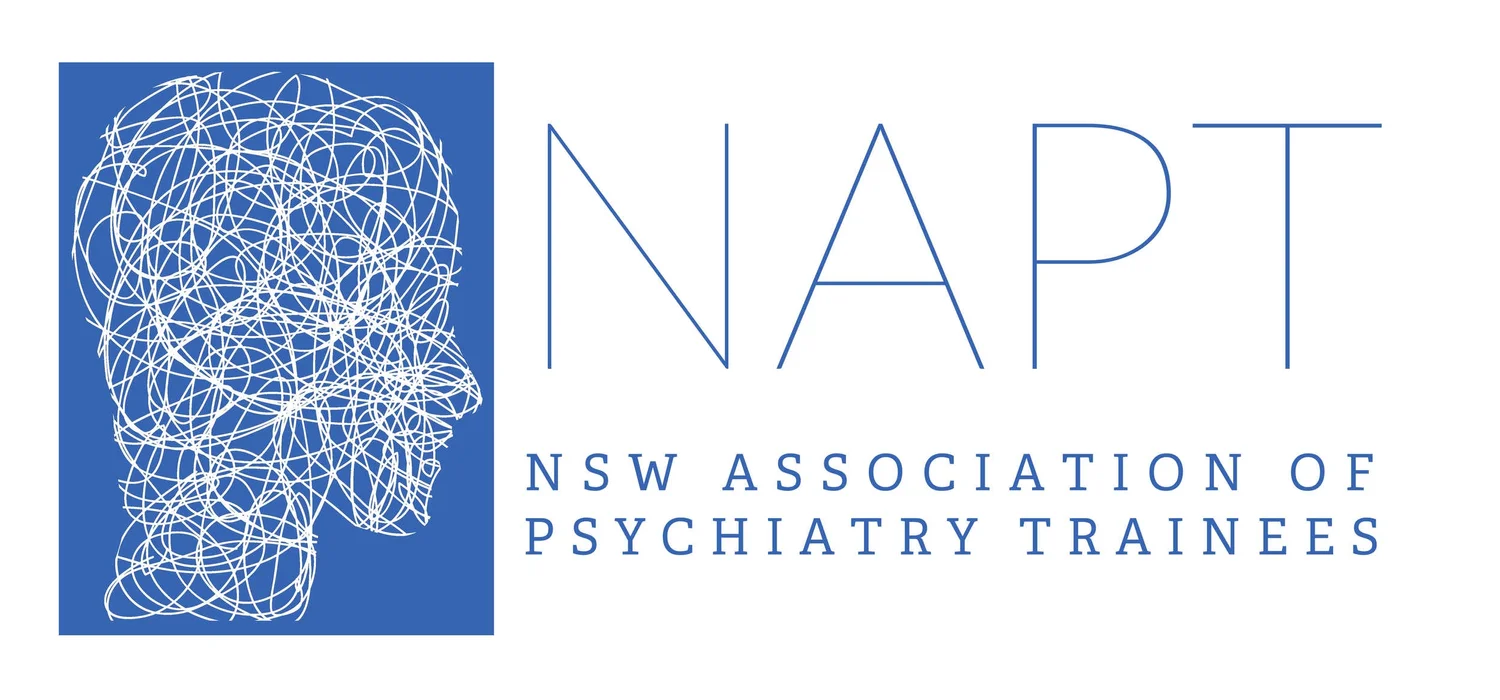Trainee Welfare
Everyone experiences stress, and it affects people differently. Psychiatry trainees and other mental health professionals are in a unique position to learn about people's inner worlds. As a result, we often experience vicarious trauma when we hear about people's past traumas, but we may also witness ongoing traumatic interactions or be drawn into these interactions. We may be exposed to physical danger and verbal abuse from patients or their contacts. It can also be frustrating when people do not get better or they relapse after you have worked so hard together. As in any workplace, we can also encounter issues with the training program, hospital, network, or individuals. Developing a core group of other trainees in your stage can be very helpful in processing and responding to these stressors.
Another issue that often arises because we are so close to people's emotions and trauma is transference. Understanding the process of transference and counter-transference is important to processing your feelings about a situation and making good clinical judgments. While there are many theoretical approaches to these two related concepts from psychoanalysis, it can be helpful to read relevant writings and to discuss the situation with others. Your supervisor or another senior clinician would be a good first stop if you are encountering an issue for transference or counter-transference. Peer review (peer supervision) groups are also very helpful in processing clinical issues of all types.
Doctors experience mental illness as a result of biological, psychological, and social vulnerabilities just like anyone else. Many doctors are afraid that Mandatory Reporting means that disclosures they make about their own mental health will result in them being barred from practice. This is most often not the case. Regulatory bodies care about patient safety problems, not that a person has a particular diagnosis or experience. Dr Anthony Llewellyn explains what Mandatory Reporting in NSW means for you.
NSW Health also recently released resources to promote wellbeing amongst doctors in training: JMO Wellbeing and Support Programs.
For confidential support and advice you can contact:
RANZCP Member Welfare Support Line 1800 941 002
NSW JMO Support Line 1300 JMO 321 (1300 566 321)
NSW Doctors Health Advisory Service 02 9437 655
Beyondblue 1300 22 4636
Lifeline 13 11 14
Medical Benevolent Association NSW 02 9987 0504
Your GP - having a GP you feel comfortable talking to is important! If you don't have a GP, get one as soon as possible.
If you need to speak to a local mental health professional, call the Mental Health Line on 1800 011 511. In an emergency, dial 000.
